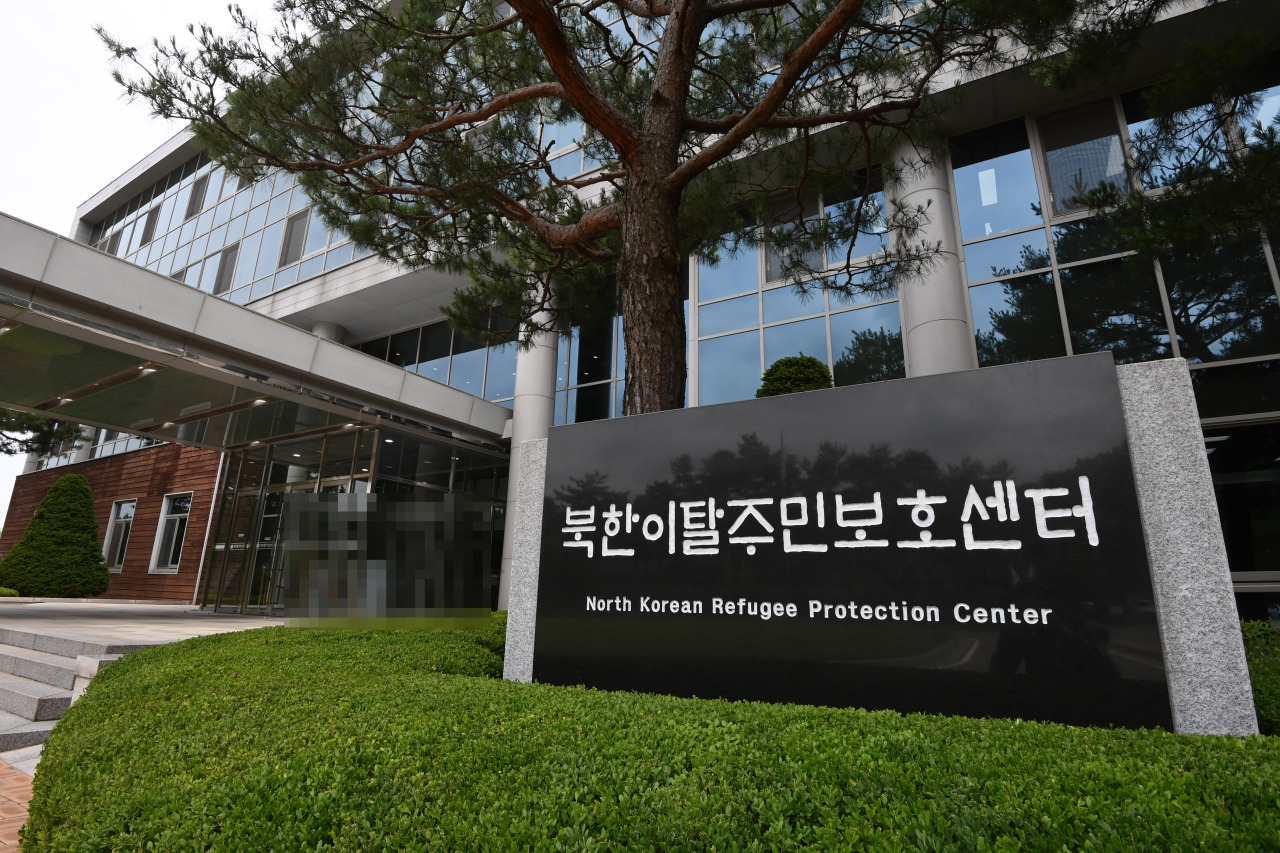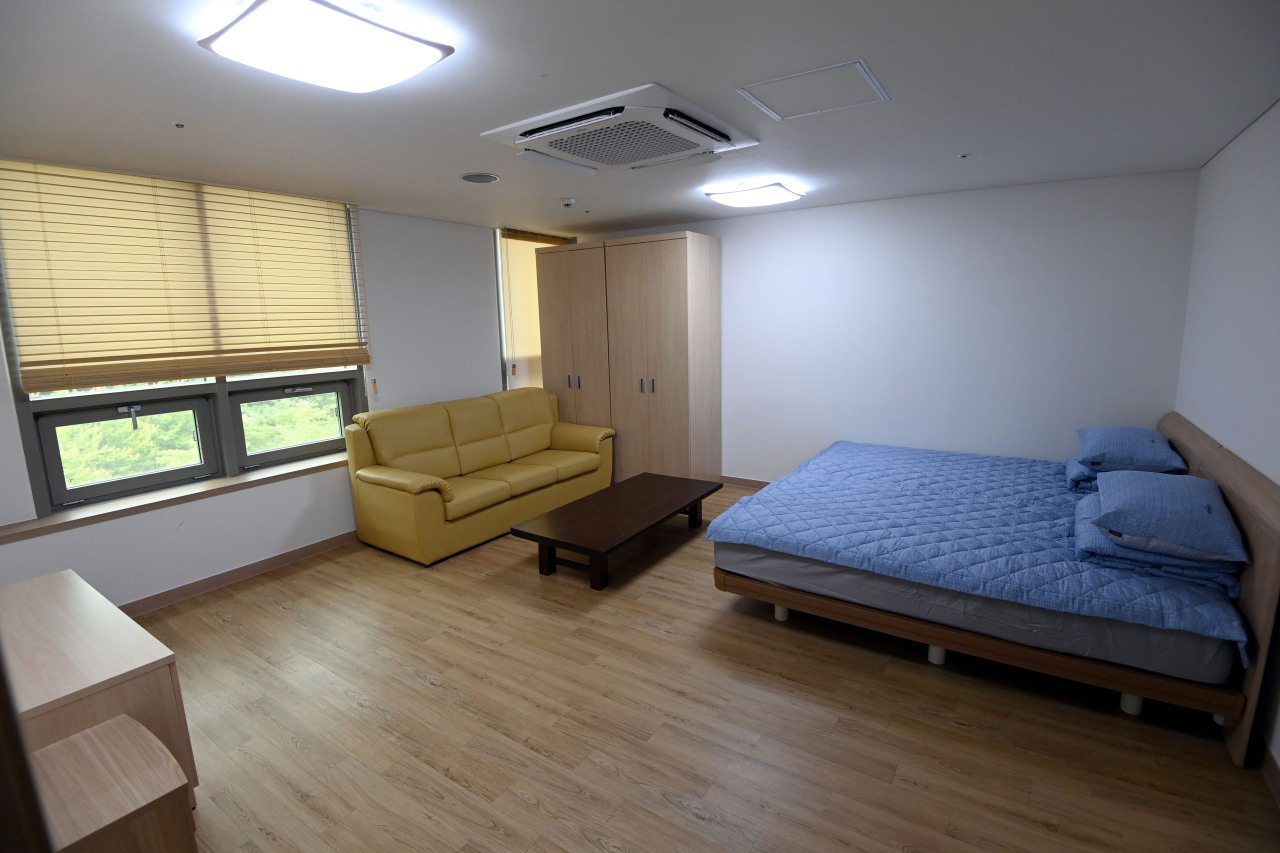 |
The main building of the North Korean Refugee Protection Center (Joint Press Corps-Yonhap) |
Over 30,000 North Korean defectors have risked their lives to escape their communist homeland and settle in the South since the end of the 1950-53 Korean War.
But before starting a new life in the more prosperous South, all refugees must go through a period of investigation and a debriefing by the spy agency.
Run by the National Intelligence Service, the North Korean Refugee Protection Center in Siheung, Gyeonggi Province, is where defectors get their first glimpse of the South. At the center, established in 2008 to ferret out spies, refugees stay up to three months and undergo interrogation about their motives and what led them to their defection, before receiving clearance to move ahead with the resettlement process.
Many South Koreans, however, associate the center with human rights violations. In 2013 a North Korean defector was indicted on espionage charges based on fabricated testimony that his sister was coerced to give while she was confined at the center for around six months.
On Wednesday the NIS invited a group of reporters to the center for the first time since the scandal, saying the facility has been revamped with improved human rights protections at every step, from the defectors’ arrival to their interrogation and life in the residence.
NIS chief Park Jie-won told reporters that about 7,600 people had passed through the center since 2014, but no human rights violations had been found. There are still three ongoing legal cases against the organization, all of which concern events that occurred in 2013.
The facility has emphasized the protection of defectors more than interrogations since the name change in 2014, according to officials. Previously it was called the Joint Interrogation Center.
Some notable changes include the shortened investigation period, from 180 days to 90 days, though for most defectors questioning is completed in five to 10 days. There’s also an in-house human rights lawyer who provides legal counsel and assistance throughout the interrogation period and makes sure defectors’ rights are not infringed upon.
The center also removed all closed-circuit TVs in the residential part of the center, where defectors sleep and spend their free time. It also completely separated the accommodations area from the investigation room, unlike in the past when some defectors were confined and questioned inside their personal living space.
Investigation sessions are recorded on video only with the defectors’ consent. The investigation rooms are also visible from the hallway through glass doors. The questioning sessions run about six hours a day.
Upon arrival, all defectors sit through an instruction session that explains the purpose and basis of the investigation and what to expect at the center. Then they go through a body screening to make sure the defectors are not carrying prohibited items, such as North Korean medicines or hazardous items.
They then receive necessity goods, such as clothing and personal hygiene items, and are placed into the accommodation for their stay at the center. Men and women are divided. Each room is equipped with a bathroom, TV, desk, closet and fridge, and accommodates two to six people. There is also a special room for high-ranking defectors. Following controversy surrounding solo confinement, single rooms are only allowed for those who request them or for infectious disease concerns.
 |
A room in the residence for North Korean defectors within the North Korean Refugee Protection Center (Joint Press Corps-Yonhap) |
Investigations usually start two to three weeks after a defector arrives at the center, after receiving necessary health treatments and considering an adjustment period.
The center, which consists of several buildings, is equipped with recreational and cultural facilities, including the gym, library, music center and computer center. There is also an indoor and outdoor playground for kids, which an official described as the most “vibrant” place within the facility.
There are doctors and dentists, with emergency staff on duty 24 hours a day.
Park stressed that enhancing human rights conditions and making the facility more livable have not jeopardized its counterespionage function.
“Before resolving the unique condition of division (of the Korean Peninsula), we cannot avoid probe and verification on the defectors,” said Park. “If there is a spy, the NIS’ job is to capture the spy. Somebody has to do this work in order to protect our national security and give more benefit to more defectors.”
Since 2008, the NIS has identified 11 spies through the facility, as well as 180 non-North Koreans who posed as defectors, mostly to receive related benefits.
By Ahn Sung-mi (
sahn@heraldcorp.com)









![[Today’s K-pop] Blackpink’s Jennie, Lisa invited to Coachella as solo acts](http://res.heraldm.com/phpwas/restmb_idxmake.php?idx=644&simg=/content/image/2024/11/21/20241121050099_0.jpg)